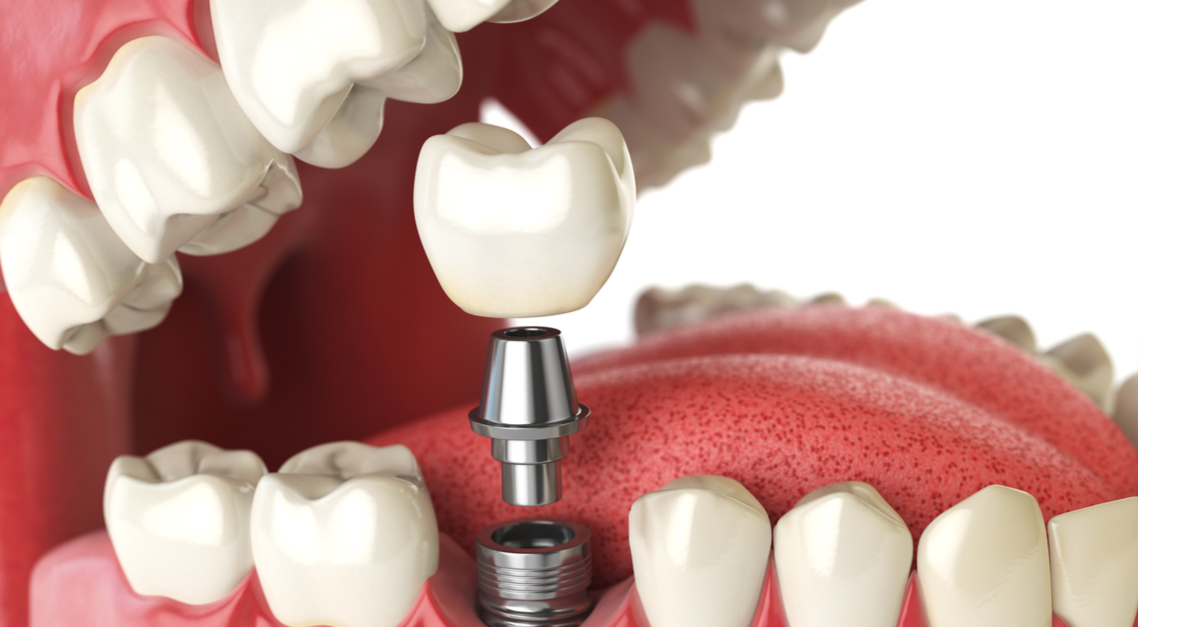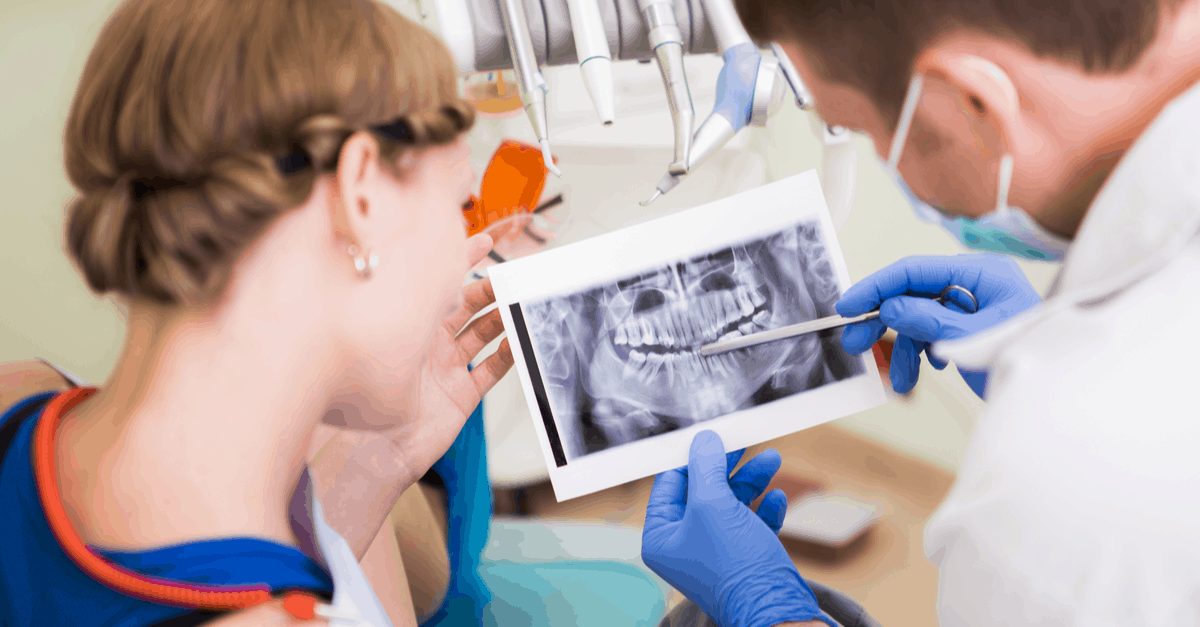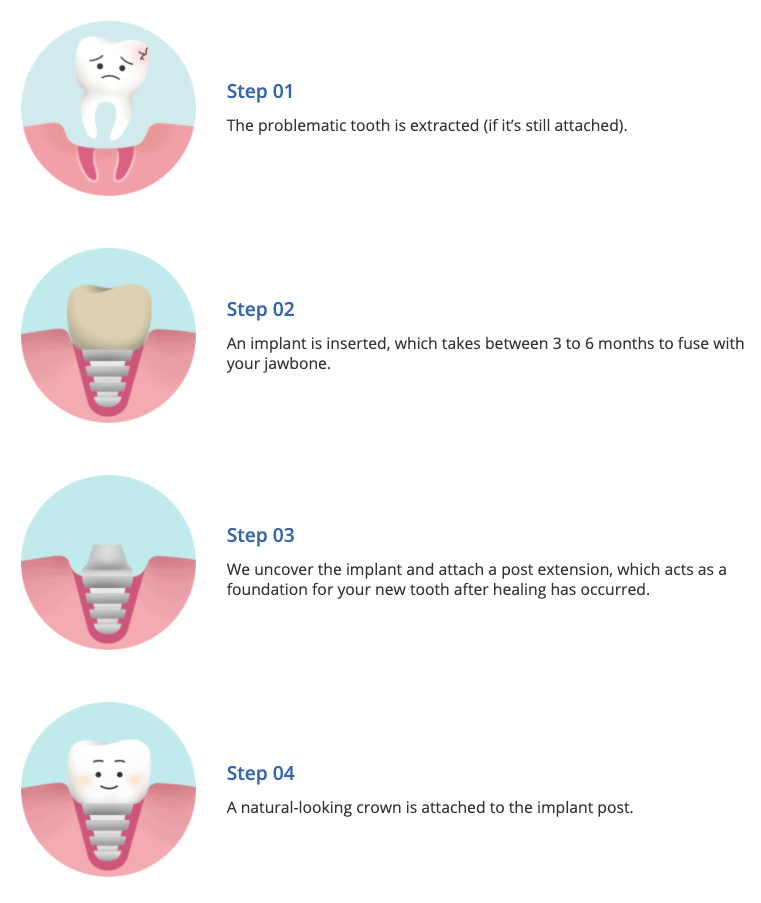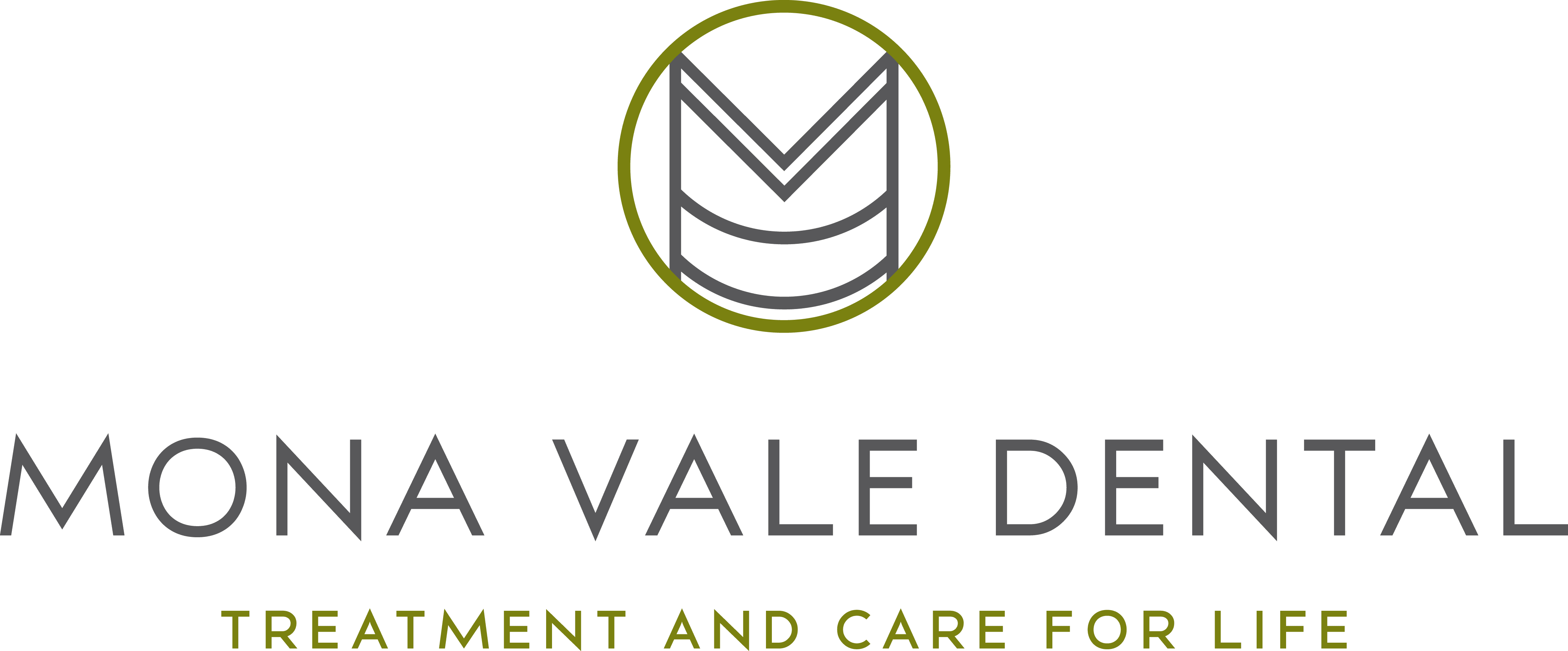If any of your teeth are broken or decayed, you’re probably hiding your smile while feeling a lot of pain.
What if you’re dealing with a missing tooth instead?
This doesn’t usually hurt as much, but can still cause discomfort and headaches, by putting extra pressure on joints in the jaw. Absent teeth may even cause speech problems and change the shape of your face. It’s also hard to hide any gaps in the front of your mouth.
People with damaged or missing teeth should seek treatment as soon as possible.
There are various tooth replacement options, depending on the extent of damage (whether this is caused by decay or injury).
Our article focuses on dental implants, which are generally the best option for replacing an entire tooth, or multiple teeth.
What are dental implants?
Dental implants are artificial and permanent replacements for teeth – replicating the natural look and feel of the real thing. This durable solution lasts for many years with proper care.
The implant system consists of a titanium post that’s inserted into the bones (to replace the root structure) and a crown that functions exactly as a tooth would.
Initially, a cover is attached to the implant and worn for 3 to 6 months, to give the titanium time to fuse with the jawbone. After this has occurred, a permanent crown is placed.
Why consider dental implants for permanent tooth replacement, instead of dentures or bridges?
The preparatory dental work doesn’t impact other teeth:
Implants are a popular option because there’s no need to alter surrounding teeth in order to accommodate the treatment (unlike with dental bridges, where some enamel must be removed from adjacent teeth to make room for the bridgework).
This is the longest-lasting solution, out of all tooth replacement options:
Dental implants are at least 80 per cent as strong as natural teeth, which means they’re more secure and last longer than bridges or dentures. Although the upfront costs of implants are higher, this should be a one-off investment (you save money in the long run).
Implants are the easiest to clean:
Implants are more convenient than dentures, as they’re permanently fixed to your gums and don’t need to be removed for cleaning. It’s not uncommon for our patients to replace their dentures with implants, for this very reason!
As for bridges, you need to be more careful than usual when cleaning teeth as food can easily become trapped under the bridge.
Having said this, it’s important to discuss all tooth replacement options with your dentist. Bridges or dentures may be more suitable for you (depending on your circumstances).
Who are dental implants suitable for?
Dental implants are suitable for adults whose jaws have developed (generally from age 20 onwards). It’s important the patient has healthy gum tissue and bone structure to support the implant, otherwise an alternative is needed.
Are dental implants a safe option for permanent tooth replacement?
Yes. At Mona Vale Dental, the artificial tooth (crown) is made out of ceramic and the “root” post is made out of titanium. Both materials are biocompatible with the human body and have been safely used for decades. Some patients may have allergies to titanium, but this is very rare. Please speak with your dentist if you’re worried about allergies, or have an autoimmune condition.
What to expect when replacing teeth with dental implants
The first step is the consultation, where we discuss your situation and assess your mouth with a series of highly accurate 3D scans.
We then spread out four procedures over a number of months, to give your mouth time to heal and adapt to the changes. When it comes to inserting a single implant post, this generally only takes half an hour, but multiple implants take longer.
After the tooth replacement procedure:
Rest assured, there’s no pain involved with this procedure as we numb your mouth with local anaesthetic. Any initial tenderness or discomfort that you feel after the procedure can be eased with over-the-counter pain medication or prescribed antibiotics.
It’s not unusual to experience a small amount of pain, bleeding, bruising or swelling around the implant site. Speak with your dentist if this doesn’t improve after a few days, or you’re concerned.
Please only eat soft foods at this time, while your mouth is still tender. Examples include avocado, banana, soup, cheese, eggs, rice pudding and yoghurt. Stay away from any spicy, chewy or acidic foods, hard nuts and brittle lollies for a few days after the procedure.
And straws shouldn’t be used for at least one week, because complications may arise from the suction.
How to take care of dental implants after the tooth replacement procedure
It’s important to thoroughly clean your implants morning and night, while brushing your teeth.
You don’t need to do anything special, just make sure you use a low-abrasive toothpaste that contains adequate amounts of fluoride (around 1000 to 1500 ppm).
Consider using an interdental brush to access the narrow spaces that a standard brush can’t reach as easily.
Although implants aren’t vulnerable to tooth decay, it’s still important to floss your teeth daily. This prevents plaque from developing on gum tissue near the implant, as well as on other teeth.
Dental implant tooth replacement cost (Sydney)
Implants generally cost between $2,000 and $7,000 for each tooth that needs replacing.
Pricing is influenced by a number of factors.
- Dental implant procedure: $5,000 to $5,500
- More complex single dental implant: $5,500 to $6,500
- ‘Full arch’ dental implant procedure: $20,000 to $30,000
Please note, Medicare doesn’t cover dental implants, but part of the costs may be covered by private health insurers (depending on your level of cover – check with your provider).
Replacing teeth? Mona Vale Dental offers interest-free and flexible payment plans
Dr Alistair Graham is experienced in all aspects of permanent tooth replacement – including both the surgical and restorative phases of dental implants. Our experienced team has been helping patients from the Northern Beaches and surrounding areas for more than a decade.
Call us on (02) 9997 1100 to book an appointment or find out more.






